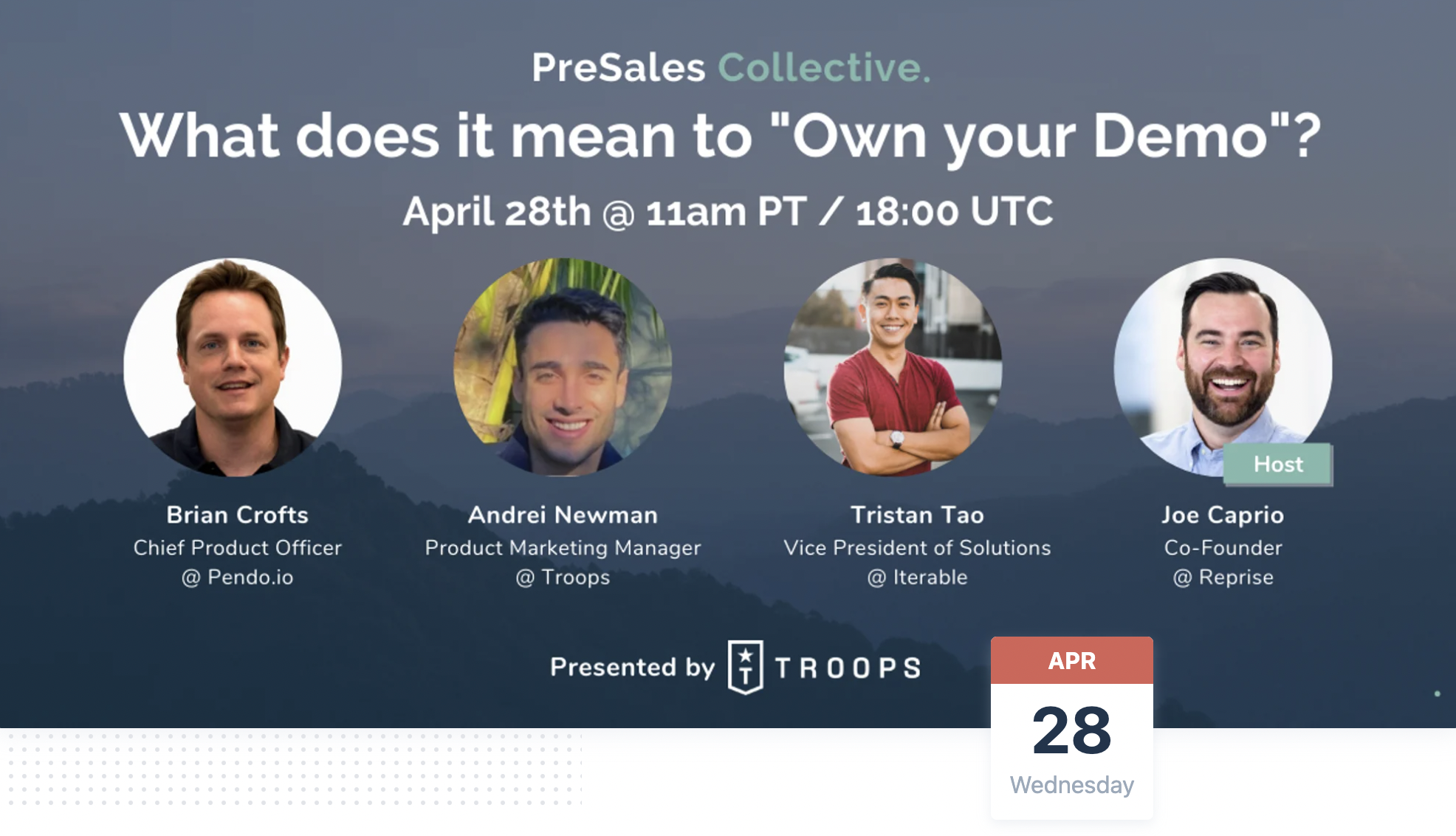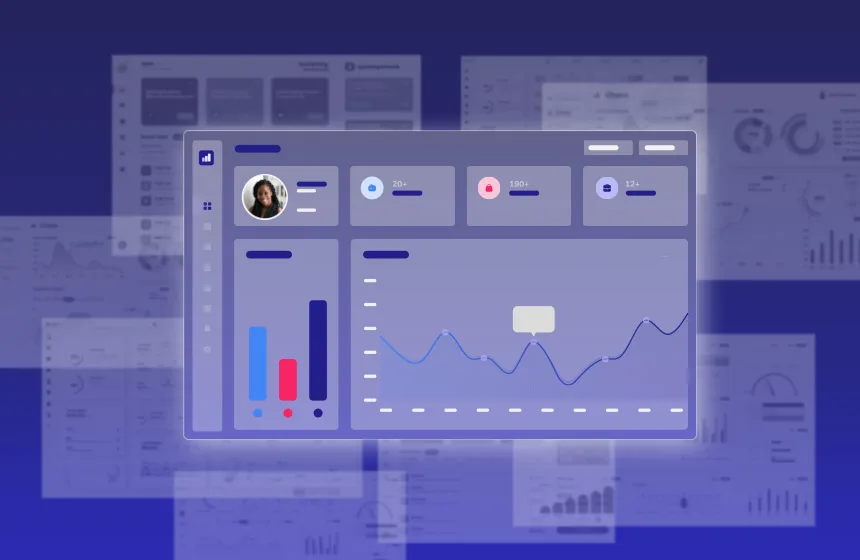Accelerate deals and increase win rates with the leading enterprise AI demo platform.
Who Owns Your Demo? PreSales Collective Webinar Recap

February 10, 2025
Table of Contents
So who really owns the demo? Not just uses it or contributes to it – but who actually takes real, concrete ownership of it?
It’s a hot topic these days, so in the latest Real Talk webinar with the PreSales Collective we invited guests across various functions with the hopes that they’d fight it out for the crowd’s enjoyment (although, they talked more about cross-functional cooperation instead!).
Our panelists this time were:
Brian Crofts, Chief Product Officer at Pendo.io
Andrei Newman, Product Marketing Manager at Troops
Tristan Tao, VP of Solutions at Iterable
Our discussion was engaging and insightful as usual – here are the highlights.
We set the stage by sharing the following:
There’s a maturity curve when it comes to SaaS demo environments. As your org grows and matures, you make additional investments and it typically looks like this: You begin by building your minimum viable product and showing that live as your demo. As your product grows in complexity, and your business matures, you create a dedicated sandbox approach. At the far end of this journey, you see a few select enterprise orgs that have fully developed a demo engineering team – the final frontier.
With this framing in mind, we brought on the panelists.
The rise of product-led growth with Bryan Crofts, CPO at Pendo
Our first segment kicked off on the rise of product-led growth. Bryan shared that, at a product first company, the pressure comes back to the product team to deliver the best in market. But when your product team delivers, it makes everyone else’s job easier, sales and sales engineering included. People are experiencing your value before they even buy it.
When pressed about demo ownership, we heard that product owns at least a part of the demo, since people are using before they talk to sales. It leads to smart product teams proactively thinking about what does and does not demo well as they’re building the product, because they have some ownership here too.
In fact, some of the best feedback the product team gets is from the sales engineering team. The product team at Pendo also often sits on calls with the sales team to hear what’s going on in the actual selling process. Product knows the why behind every feature, so they’re checking in to do some training and enablement as well. It’s a unique kind of closed-loop system.
Marketing to self-educators with Andrei Newman, PMM at Troops
The buying process has been going through some big changes. Buyers want to educate themselves, and so sales is coming into the conversation later. And Covid only accelerated this trend. People became more sophisticated consumers and it’s harder to stand out with your marketing.
For example, every single SaaS vendor in your category probably has the exact same stats you do on their websites. But that’s not even how people actually buy. They make purchases based on emotion and stories – yes, even B2B buyers. They want to touch the real product, see a free trial, or at least see a good demo like you can build with Reprise. You’re educating, giving first-hand experience, and providing social proof – and that’s how you win today’s marketing game.
Doing a free trial is critical, but it’s also tough for a lot of SaaS vendors. Consumers don’t have the patience to wait three days for a sales-led demo – they want to see your product right now because at this point they’re already almost through the buying process. But business purchasing processes are challenging, especially for enterprise, which makes free trials harder to do well in the B2B world. Product tours and help centers can help buyers self-educate as they’re making a decision instead.
Demo engineering is also time-consuming and challenging, which makes it hard to scale as your company grows (though tools like Reprise make it easier). Demos on your site are part of marketing’s ownership, but they still need to be carefully vetted by sales engineering to make sure it’s accurate – otherwise you risk damaging the customer experience. So SEs and product marketers need to work closely together to get the max business results.
Demo engineering origin story
Since currently most demos are owned by a complex cross-functional team, some of the more mature SaaS companies on the market are creating a whole new function to simplify that ownership. That’s the demo engineering team, and they’re tasked with making demos better and more consistent.
It’s a huge growth area – in fact, at Iterable they’re doubling their demo engineering team in the next year because it’s a team that brings in such a huge ROI. The details of the role vary by company, but most demo engineers do some mix of preparing demos for analysts, helping scale the demo process, and building tools similar to Reprise. It’s a really cross-functional role that touches pretty much everything in the go-to-market process.
There’s a huge demand for demo engineers right now – it’s a very new field, but increasing significantly because the role is a major asset to most companies.
What’s next
Want more Real Talk? Our next webinar will be on May 18 to talk about what happened to the demo? (it’s taken on a life of its own – and we’re all trying to figure out what comes next). Register here today!
Catch the full webinar here so you don’t miss a thing.






